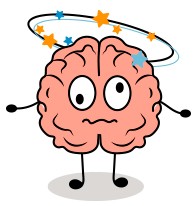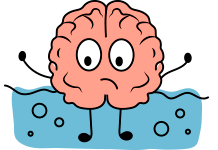Negative emotions can have a significant impact on your overall health. When you experience long-term negative emotions such as anger, anxiety, grief, or depression, it can cause a variety of physical and mental health problems. These emotions can weaken your immune system, increase your risk of heart disease, and even affect your cognitive function.
One of the most significant ways that negative emotions can impact your health is by weakening your immune system. Studies have shown that stress and negative emotions can reduce the number of white blood cells in your body, which are responsible for fighting off infections and diseases. This can leave you more susceptible to illnesses and infections, making it important to manage your negative emotions to maintain a healthy immune system.
In addition to affecting your immune system, negative emotions can also increase your risk of heart disease. Chronic stress and negative emotions can lead to high blood pressure, which can damage the walls of your arteries and increase your risk of heart disease. By managing your negative emotions, you can reduce your risk of heart disease and other chronic health conditions.
The Impact of Long-term Negative Emotions on Physical Health
Negative emotions can have a significant impact on your physical health. Chronic stress, cardiovascular disease, hypertension, and immune system functioning are all affected by negative emotions.
Chronic Stress and Its Effects: how negative emotions affect your health

Chronic stress can lead to a variety of negative health effects. When you experience stress, your body releases hormones like cortisol and adrenaline. These hormones can cause an increase in heart rate, blood pressure, and blood sugar levels. Over time, this can lead to chronic health conditions like heart disease, high blood pressure, and diabetes.
Cardiovascular Disease and Hypertension
Negative emotions like anger, fear, and anxiety can all contribute to cardiovascular disease and hypertension. When you experience these emotions, your body releases stress hormones that can cause inflammation and damage to your blood vessels. This can lead to atherosclerosis, or the buildup of plaque in your arteries, which can increase your risk of heart attack and stroke.
Immune System Functioning: how negative emotions affect your health

Negative emotions can also have a significant impact on your immune system functioning. When you experience stress or negative emotions, your body releases cortisol, which can suppress your immune system. This can make you more susceptible to infections and illnesses. Medical research now links chronic stress to autoimmune disease and there are over 100 of them.
In addition to these specific effects, negative emotions can also have a more general impact on your overall well-being and physical health. Research has shown that people who experience more positive emotions tend to have better physical health outcomes. Therefore, those who experience more negative emotions tend to have worse outcomes.
How do negative emotions affect your health? It’s important to recognize the impact of holding onto negative emotions. Understanding the impact it can have on your physical health and taking steps to manage them. This might include practicing stress-reduction techniques like meditation, exercise, and seeking support from friends and family. Talking to a mental health professional if you are experiencing symptoms of anxiety or depression. By taking care of your mental health, you can also improve your physical health and overall well-being.
The Connection Between Negative Emotions and Mental Health

Negative emotions can have a significant impact on your mental health. When you experience negative emotions, such as anxiety, depression, fear, frustration, or resentment, it can lead to mental health problems and affect your psychological well-being. In this section, we will explore the connection between negative emotions and mental health, including anxiety disorders and depression, emotional regulation and coping mechanisms, and psychological well-being.
Anxiety Disorders and Depression
Negative emotional states, such as anxiety and depression, can have a significant impact on your mental health. Anxiety disorders and depression are two of the most common mental health problems that people experience. Anxiety disorders are characterized by excessive worry, fear, and avoidance coping, while depression is characterized by persistent sadness, loss of interest, and feelings of worthlessness.
Emotional Regulation and Coping Mechanisms
Emotional regulation and coping mechanisms are essential for managing negative emotions. Emotional regulation involves the ability to understand and manage your emotions effectively. Coping mechanisms are strategies that you use to deal with uncomfortable emotions. Some coping mechanisms are healthier than others, and it’s important to find ones that work for you.
Psychological Well-Being
Psychological well-being refers to your overall sense of happiness and satisfaction with life. It encompasses your emotional health, judgment, and ability to cope with stress. Negative emotions can have a significant impact on your psychological well-being, leading to suffering and a lack of optimism.
In conclusion, negative emotions can have a significant impact on your mental health and psychological well-being. It’s essential to understand the connection between negative emotions and mental health and to find healthy coping mechanisms to manage them effectively. By practicing emotional regulation and finding healthy coping mechanisms, you can improve your mental health and overall well-being.
The Importance of Positive Emotions for Overall Well-Being

The Benefits of Positive Emotions
When it comes to your overall well-being, positive emotions play a crucial role. Research has shown that experiencing positive emotions can lead to a variety of benefits, including:
- Reduced stress levels
- Improved immune function
- Increased resilience
- Better cardiovascular health
- Improved relationships
- Increased life satisfaction
In short, positive emotions can help you feel better physically, mentally, and emotionally.
Cultivating Positive Emotions
So, how can you cultivate positive emotions in your life? Here are some ideas:
- Practice gratitude: Take time each day to think about the things you’re grateful for. This can help shift your focus from negative to positive.
- Find meaning: Engage in activities that give you a sense of purpose and meaning. This can help you feel more fulfilled and satisfied with your life.
- Connect with others: Spend time with people who make you feel good. This can help you build strong relationships and feel a sense of belonging.
- Take care of yourself: Make sure you’re taking care of your physical and emotional needs. This can include things like getting enough sleep, eating well, and engaging in self-care activities.
- Practice mindfulness: Take time each day to be present in the moment and focus on your thoughts and feelings. This can help you become more aware of your emotions and cultivate a sense of calm.
By incorporating these practices into your life, you can start to experience the many benefits of positive emotions.
How Does Meditation Help Stress: The Science Behind it. https://1111newme.com/2023/05/24/how-does-meditation-help-stress-the-science-behind-it/
The Biology of Emotion https://www.hsph.harvard.edu/news/magazine/happiness-stress-heart-disease/

